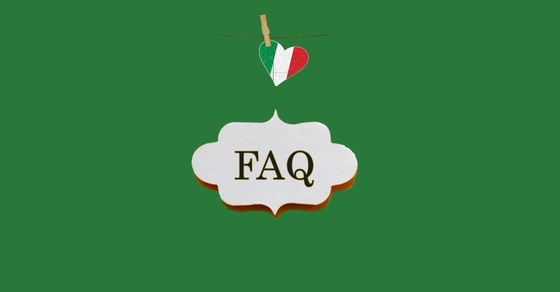Warning: Mostly off-topic post about Italian citizenship, with a little bit of speculation about Levito and Izzo at the end.
In order to get an italian passport, you need a lot of paperwork but it's feasible, I know tons of brazilians that got it in a few month's time. Mainly you need a birth certificate of your italian ancestor which I assume normally would also have to state the nationality of their parents.
There is one "backdoor" that I know that requires temporarily moving to Italy, which is maybe how the Brazilians did it in a few months? Following the typical process takes at least two years, often as many as six or seven. If you're outside of Italy, you must apply at the consulate closest to your residence. At many of the busiest consulates, it takes 2-3 years just to get an appointment (pre-covid; it may be worse now). Even if the records are in good order, it can take another year-plus for the consulate to examine them and make a decision. Latin American records are heavily scrutinized and usually take longer, due to high occurrence of falsification.
well that’s how we got ours and our coworkers got theirs as well.
The paperwork we needed was just the birth certificates and the marriage certificates Specifically on the paternal side. Only red tape they gave us was if the birth certificate say said Roberto but then the marriage certificate said Robert they had to have the same exact name even if it was just one letter off. other that we got the passports
i.e. Cannot be Luigi in one certificate and then Louis in the other or Maria in one certificate and Mary in the other. We had to go back to the apostolate to have it changed
It depends on the consular office. Typically, direct translations are accepted, but the consular officer has discretion. It gets trickier if, e.g., Panfilo decides to become Charles. Then a court order declaring that Panfilo and Charles were the same person may be required.
@eleonorad the US also has a Law of Blood. Children born to parent(s) who are US citizens are born as US citizens, even if not on US soil.
Not necessarily. Your statement as written is not factually correct, though it does apply in most cases. The U.S.'s law is also different and far narrower than Italy's law.
Italian law allows the chain to continue forever. You can claim citizenship based on a great-grandparent, great-great grandparent, or even great-great-great grandparent (beyond that may pre-date the Risorgimento, but it's possible), as long as the chain is unbroken*. In theory, no one could have lived in Italy since the 1800s, and yet their ancestors could continue claiming citizenship forever, subject to a couple of quirks - mainly, that their relative did not renounce citizenship prior to the next person in the chain's birth, and that no women are used in the chain before 1/1/1948. The right to claim citizenship also never expires. Someone could claim citizenship in 2023 based on an ancestor who lived in Italy in the 1800s, as long as they can provide the paperwork.
U.S. citizenship law related to persons born abroad to U.S. citizens has changed over time, but does NOT continue indefinitely. Current law requires at least one parent to have resided in the U.S. prior to the child's birth if both parents are U.S. citizens. If only one parent is a U.S. citizen, the parent needs to have resided in the U.S. for at least five years, including two years after the age of 14. There are a couple of other edge cases, too. Someone who acquires U.S. citizenship through a parent and then never lives there will not be able to pass it on. You cannot claim citizenship through a grandparent or beyond, though in some cases you are eligible for expedited naturalization.
[*In cases where the Italian ancestor naturalized, Italian law does create quirks related to birth order, where children of people born in Italy are not eligible because they were born post-naturalization, yet their older siblings and all descendants of their older siblings are eligible in perpetuity. Naturalization with renunciation of previous citizenship ends the chain, and children born after naturalization are completely out of luck, no exceptions. The rule where women can pass along citizenship only after 1/1/1948 also creates quirks in families with children born in that period. In a situation where a woman naturalized in 1949, her child born in 1947 would be ineligible, 1948 eligible, and 1950 ineligible - and the same is true for all of their descendants in perpetuity.]

The majority of European countries allow dual citizenship. I can only think of Germany, Austria and the Netherlands that don't but the rest all do.
Slovakia, too. It's worth noting that there are exceptions to all of the above, particularly for children born with dual nationality or other EU nationalities. I don't think any European country disallows dual citizenship in all cases. I think it's fairer to say some take a complete "laissez faire" approach, where others actively restrict it with exceptions.
Where Italy's law is unique is no generational limit. I am not aware of another European country with this quirk. It's part of the reason why Brazilians with mixed Portuguese and Italian ancestry, Argentinians with mixed Spanish and Italian ancestry, or Americans with Italian and Irish ancestry all tend to have Italian passports.
For some skating content: I am not sure if Isabeau Levito has had her Italian citizenship recognized, but she is almost certainly entitled to it. For Gabbie Izzo, it really depends on when her last Italian-born ancestor naturalized, and whether the next of kin was born before they did. An Italian grandparent in and of itself is not enough.

www.mazzeschi.it

 .
.


 about his decision to go to this group. The Eteri bonus isn't a thing anymore. Their ability to fix poor technique is questionable. Their merit in producing winning athletes is also a bit of a joke. It's all circumstantial. They get to pick only the most promising from a huge national pool, don't do the crucial early training but benefit from other coaches' good work.
about his decision to go to this group. The Eteri bonus isn't a thing anymore. Their ability to fix poor technique is questionable. Their merit in producing winning athletes is also a bit of a joke. It's all circumstantial. They get to pick only the most promising from a huge national pool, don't do the crucial early training but benefit from other coaches' good work. The majority of European countries allow dual citizenship. I can only think of Germany, Austria and the Netherlands that don't but the rest all do.
The majority of European countries allow dual citizenship. I can only think of Germany, Austria and the Netherlands that don't but the rest all do.